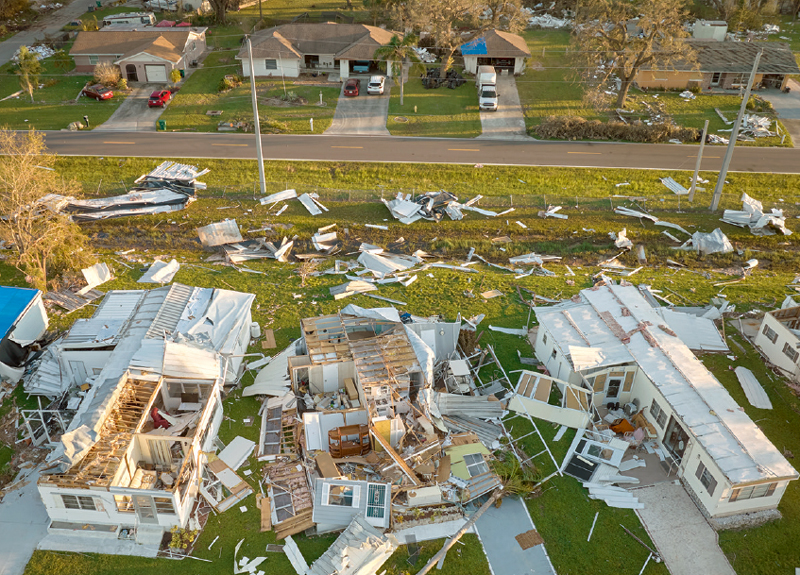Global warming has been causing more and more natural disasters over the years, resulting in insurers and reinsurers facing mounting costs. As a result of this development, Allianz – a German multinational financial services company – is increasingly focussing on risk advice as well as on a more appropriate distribution of costs.
Credits: Allianz, istockphoto/J.Picture/Bilanol
This year, according to Swiss Re, the large number of tornadoes in the USA alone caused a worldwide insurance loss of a record 60 billion dollars. “We are less prone to tornadoes in Germany. Nevertheless, there has been a rising trend in the number of extreme weather events, which result in extensive damage to buildings and infrastructure,” continued Wiemann. The largest insured loss that the German insurers have covered to date resulted from storm “Bernd” and was around eight billion euros. In the summer of 2021, this led to severe flooding, especially in the states of North Rhine-Westphalia and Rhineland-Palatinate. Many will have bad memories of “Bernd”, primarily the flash flood in the Ahr valley, which resulted in many deaths and devastated residential areas and factories.
However, the range of so-called secondary dangers, in which Allianz has seen a significant increase over the past few years, is not limited to floods and tornadoes. “There has also been a significant rise in the amount of damage caused by hailstorms, forest fires and droughts recently”, said Wiemann.

However, to what extent can these risks actually be planned and financed? Numerous German insurers have been warning for quite some time that climate change could result in higher premiums for insurance policies. Some insurance companies even see the risk of having to shut down in the long term because the climate risks will simply be too high. Against this background, insurance experts are calling, for example, for climate-related developments to play a greater role during the planning and building phases, and for a ban to be imposed on construction projects in flood plains. Wiemann is also in favour of this idea and commented on the financial situation, as follows: “We, too, are a commercial operation, hence insurance premiums must be adequate to pay for any losses incurred. In this respect, it is up to us, along with the reinsurers, to find joint solutions and to manage everything in our portfolio well. Nevertheless, we need to speak openly about spreading the costs fairly that takes the policyholder into account.” He doesn’t see Allianz’s withdrawal from parts of industrial insurance as an issue. “However, we expect that there will be fewer policies covering natural disasters in the long term,” Wiemann concluded. (bre)

“Here in Germany, too, the number of extreme weather events is on the rise.”
Jürgen Wiemann, Head of Property Underwriting
at Allianz Commercial
Facts
Allianz Group Commercial
Trading: in Germany since 1890
Employees: Approx. 160,000 worldwide
Main business: Property, life and health insurance as well as industrial insurance and reinsurance, investments
Turnover in 2022: approx. 153 billion euros






